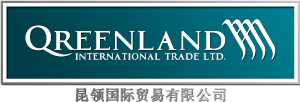Juni 6, 2018
Sales
Sales Growth
internal and external factors that affect sales of your product

Every business whether it is a start-up or an established company makes efforts to expand sales volume as growth in sales is an important key to survive in the market. In general, companies achieve that by the introduction of new products, the promotion of new products, the usage of marketing strategies like discounts or easier payment methods. There are various factors that affect sales, hence growth. We can divide factors that affect the sales of companies‘ products into two main groups:
A) Internal Factors
Internal factors originate within the company itself, hence it’s in the company’s sphere of influence and control. They can be characterized as the company’s response to any market changes. Growth of a company is related to an increase of sales volume that is the result of positive control of internal factors. Here we can distinguish between different internal factors that affect the sales of a product:
1. Company’s Products
The largest internal factor that affects sales of a product is the product itself. It determines the company’s sales growth, hence indicates success. If the control within the company’s sphere is exercised properly, the company offers products that satisfy the needs of its customers at reasonable prices. In addition to that the company needs to monitor and maintain steadily the quality and to improve products and services accordingly to changing technology and consumer demands, preferences and expectations.
2. Marketing Strategy
Right after the company’s products, marketing strategies play an essential role within internal factors that affect sales growth. Also here, it’s in the sphere of the company itself like the marketing department that selects the correct target market, determines brand positioning, sets appropriate pricing, and chooses suitable distribution channels. All that makes huge impact on sale of a product.
3. Marketing Personnel
In order to choose suitable marketing strategies a company needs a professional marketing force that aims at approaching more customers. Hence, the right qualifications and mindset of those employees or the experience of a third party is essential to determining the creation of marketing strategies that are up to date. Continuous marketing research is an essential factor within the company’s sphere as it provides data that are updated with recent market trends.
4. Technology & Automation
Another internal factor that aims at higher sales growth is technological upgradation. A company that focuses on investments into technology and automation that are up to date and eases the workflow more effectively can generate an increase of sales and affect the expand of market share. There are business processes that improve the company’s performance such as electronic payment facilities, easier and faster automated orders, tracking systems for shipments to just name a few.
5. Presence in Multiple Formats
Companies that are present in various distribution channels such us e-commerce affects sales growth. E-commerce is an internet based selling point, also called online marketplace. It is the new generation of traditional marketplaces such as shopping malls. Online catalogues, payment and data security, lower expenses, ability to transcend geographical boundaries make e-commerce platforms such as Amazon extremely successful compared to brick-and-mortar models.
6. Digital Footprints of Customers
Online-shopping improves quality of living and changes buying patterns of customers. By doing so, customers leave digital footprints like their shopping history that companies take advantage of. The data that is gathered by automated tracking and recording tools enabling the marketing department of a company to tailor marketing strategies to the customers‘ needs. Hence, it allows companies to offer lucrative sales deals and personalized messages for customers resulting in higher sales volume.
7. Availability of Finances
Dead capital that consists of unsold products stored at the back of warehouses limits the abilities of a company to maintain and improve its performance. Hence, a company that has the right amount of capital to leveraging for the introduction of new products, driving expensive brand-building campaigns, the investment in better technology achieves higher sales growth. It’s vital for businesses to exploit opportunities that affect the sales of their products.
8. Integration with Suppliers
Supply chain management is another internal factor that affects company’s sales growth. A solid and tight network of suppliers enables companies to source raw materials, components and consumables that are delivered of right quality, in the right quantity, to the right place, on the right time.
B) External Factors
External factors are also know as macro-economic factors or market changes. These factors affect the sales of products due to the interplay of various economic, political, technological, and competition forces. They can affect companies‘ sales growth. External factors are not in the company’s sphere of control and requires to make strategical moves to respond to any changes. There are different external factors a company should be aware of:
1. Consumer & Buyer Expectations
A company cannot control the steady change of taste and preference of consumers, nor their expectations regarding prices, new features, packaging, delivery and after sales services. Hence, companies have to adapt its offerings and strategies to meet the steady change of consumer requirements in order to increase sales growth.
2. Economic Cycle
Every economy of any country experiences different phases that are commonly known as growth, expansion and recession. Hence, the demand of a company’s product depends upon the phase that is prevalent in the economy of a country. A country that is in the phase of growth consists of a robust consumer demand as there is more disposable income. If an economy faces a recession, customer demand shrinks as money supply is quite poor. Any economic cycle affects sales growth of companies.
3. Laws & Regulations
Every company has to follow the demands of laws and statues of countries the company operates in. Any pronouncements of laws like the legality of products, minimum pricing and wage requirements, taxes and import duties, advertising and import restrictions affect the sales of products. This country specific external factor dictates the market presence of a product.
4. Competitors’ Market Position
The marketshare of a competitor and his products determine sales volume of a company that enters the market or introduces new products. If the competitor’s brand is quite strong it affects companies‘ sales and vice-versa.
5. Fragmentation & Niche Markets
Due to the advent of technology, companies are able to provide more customized solutions to their customers than they could do before. As consequence, many niche markets emerged that led to the subdivision of markets in many smaller, more specialized segments affecting sales growth. Hence, external factors like the emergence of specialized market segments lead to the erosion of marketshare of companies that do not evolve.
Tags:
- advantage
- advertising
- affect
- automation
- brand
- brand-building
- brick-and-mortar
- business
- buyer
- buying pattern
- campaign
- capital
- change
- company
- competition
- consumer
- control
- country
- customer
- data
- delivery
- demand
- digital
- discount
- distribution
- distribution channel
- e-commerce
- economic cycle
- economy
- electronic
- emergence
- erosion
- expansion
- expectation
- expense
- experience
- external factor
- footprint
- geographical
- growth
- impact
- improve
- income
- increase
- internal factor
- interplay
- introduction
- investment
- law
- legality
- life-cycle
- macro-economic
- management
- market
- marketing
- marketing department
- marketplace
- marketshare
- network
- online shopping
- packaging
- payment
- performance
- personnel
- phase
- platform
- political
- positioning
- preference
- presence
- pricing
- product
- promotion
- quality
- quantity
- recession
- regulation
- restriction
- right
- role
- sale
- security
- shipment
- shopping
- strategy
- supply chain
- tax
- technology
- tool
- tracking
- trend
- unsold
- upgradation
- volume
- wage
- warehouse
- workflow

